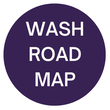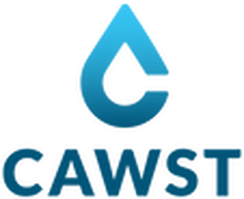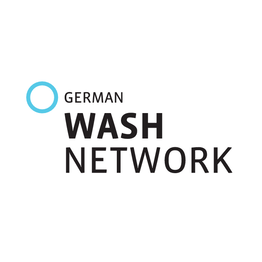INITIATIVE 1: THE WASH HUB
A “one-stop” shop for online knowledge sharing and learning
On a daily basis, humanitarian workers have to deal with complex intervention challenges requiring practical solutions. However, technical expertise may not be available locally due to inexperience, cost, insecurity or remote locations. Having the ”right systems and information, at the right place, at the right time’’ is vital to acquire the knowledge to respond effectively in emergencies. Thus, promoting cross-learning and sharing experienced, technical expertise and best practices are crucial to addressing humanitarian challenges. Undeniably, there is a breadth and depth of knowledge within the community of practitioners, but information and core knowledge are often scattered across many websites in poorly indexed libraries which are difficult to access by practitioners globally. It is now time to share and build them locally.
The online “WASH Hub” platform aims to answer the above problematic status quo: it will be a virtual space for field-level WASH practitioners to access key technical resources, events, and training. It will be designed as a service by and for humanitarian practitioners, particularly those working in local organizations around the world.
The main output of this initiative is the ”one-stop’’ shop for online knowledge sharing and learning to provide the opportunity for local humanitarian organizations to engage and benefit from knowledge, data, and learning products. It aims to link existing external partners and stakeholders operated resources, such as the COVID-19 Hygiene Hub, eCompendium, Octopus, Wash’Em amongst other tools, to simplify accessing and sharing information and knowledge, particularly for local actors in technologically challenging settings. Aside from the resource repositories, the WASH Hub will also link humanitarian workers to key agency document repositories and online training packages and provide regular updates on WASH events and conferences through regular WASH Hub newsletter updates and social media engagement.
Information gathered through mapping of existing platforms and a survey to WASH practitioners will guide the design of a second output: a 2-way communication hub between humanitarian workers and technical experts (depending on the results of the feasibility study carried out through Phase 2).
The online “WASH Hub” platform aims to answer the above problematic status quo: it will be a virtual space for field-level WASH practitioners to access key technical resources, events, and training. It will be designed as a service by and for humanitarian practitioners, particularly those working in local organizations around the world.
The main output of this initiative is the ”one-stop’’ shop for online knowledge sharing and learning to provide the opportunity for local humanitarian organizations to engage and benefit from knowledge, data, and learning products. It aims to link existing external partners and stakeholders operated resources, such as the COVID-19 Hygiene Hub, eCompendium, Octopus, Wash’Em amongst other tools, to simplify accessing and sharing information and knowledge, particularly for local actors in technologically challenging settings. Aside from the resource repositories, the WASH Hub will also link humanitarian workers to key agency document repositories and online training packages and provide regular updates on WASH events and conferences through regular WASH Hub newsletter updates and social media engagement.
Information gathered through mapping of existing platforms and a survey to WASH practitioners will guide the design of a second output: a 2-way communication hub between humanitarian workers and technical experts (depending on the results of the feasibility study carried out through Phase 2).
|
Finding report on the WASH Hub, published in November 2023:
|
| ||
ADDITIONAL INFORMATION:
Deliverables:
> Phase 1 Scoping : outcomes and recommendations report; End of 2023 (done)
> Phase 2 (Conceptualization): Mid or End of 2024
Provisional total budget:
195 000 USD
Synergies with:
Initiatives 2, 3, 4, 5, 6, 7 and 8.
Deliverables:
> Phase 1 Scoping : outcomes and recommendations report; End of 2023 (done)
> Phase 2 (Conceptualization): Mid or End of 2024
Provisional total budget:
195 000 USD
Synergies with:
Initiatives 2, 3, 4, 5, 6, 7 and 8.
|
LED BY:
|
PARTICIPANTS:
|
DO YOU WISH TO CONTRIBUTE TO THIS INITIATIVE?


